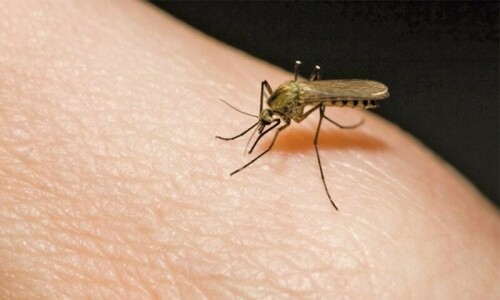KARACHI: The Balochistan government finally paid heed to environmentalists’ concerns over Churna Island and declared the biodiversity hotspot a ‘Marine Protected Area’ on Wednesday.
Officials said that the decision was taken at a meeting of the provincial cabinet, presided over by Balochistan Chief Minister Mir Sarfraz Bugti in Quetta.
It’s the second island in Balochistan to get the protected status. Earlier in June 2017, the provincial government had declared Astola Island as the marine protected area.
Both islands are among the few marine areas in the country with coral habitats and considered biodiversity hotspots.
The island is known for over 50 species of corals, 250 species of fish and many invertebrates and vertebrates, says WWF official
Located near Karachi, Churna Island is being extensively used for scuba diving, snorkelling, cliff jumping, and jet skiing and other recreational activities. It’s also considered an important fishing ground where a large number of fishermen from Sindh and Balochistan operate.
Experts believe that the marine ecosystem and diverse wildlife inhabiting Churna Island are under serious threat due to many anthropogenic activities, including the development of power plants, single-point mooring, an oil refinery in the immediate vicinity, as well as recreational activities that are conducted at the area.
In a statement, the World Wide Fund for Nature-Pakistan (WWF-P) appreciated the Balochistan government’s decision, describing it as an important step towards protecting the fragile ecosystem of the island.
“The organisation appeals to both the federal and Sindh governments to take decisive actions to achieve the target of 30 x 30 by following the footsteps of the government of Balochistan and declaring additional marine protected areas in Pakistan,” Senior Director Biodiversity Programmes at WWF-P Rab Nawaz said.
30 x 30 is a worldwide initiative for governments to designate 30 per cent of Earth’s land and ocean area as protected areas by 2030.
Mr Nawaz regretted that the country was losing marine resources due to poorly planned development activities and climate change. “This initiative will help reverse the damage caused to marine ecosystems and would protect marine life for future generations.”
Highlighting biodiversity of Churna Island, Technical Adviser at WWF-P Muhammad Moazzam Khan said, “It’s known for more than 50 species of corals and 250 species of fish as well as many invertebrates and vertebrates. Its protected status will help address the challenges of biodiversity loss and protect the threatened species.”
It may be noted that Pakistan is a signatory of the Convention on Biological Diversity. According to its Kunming-Montreal Global Biodiversity Framework, states are required to declare 30pc of the ocean area as a protected area by 2030.
Published in Dawn, September 5th, 2024















































Dear visitor, the comments section is undergoing an overhaul and will return soon.